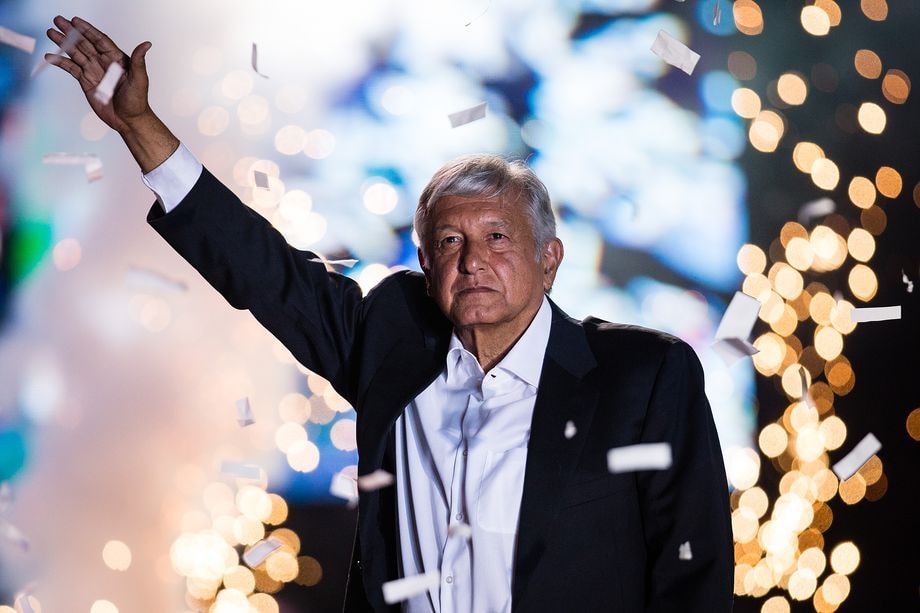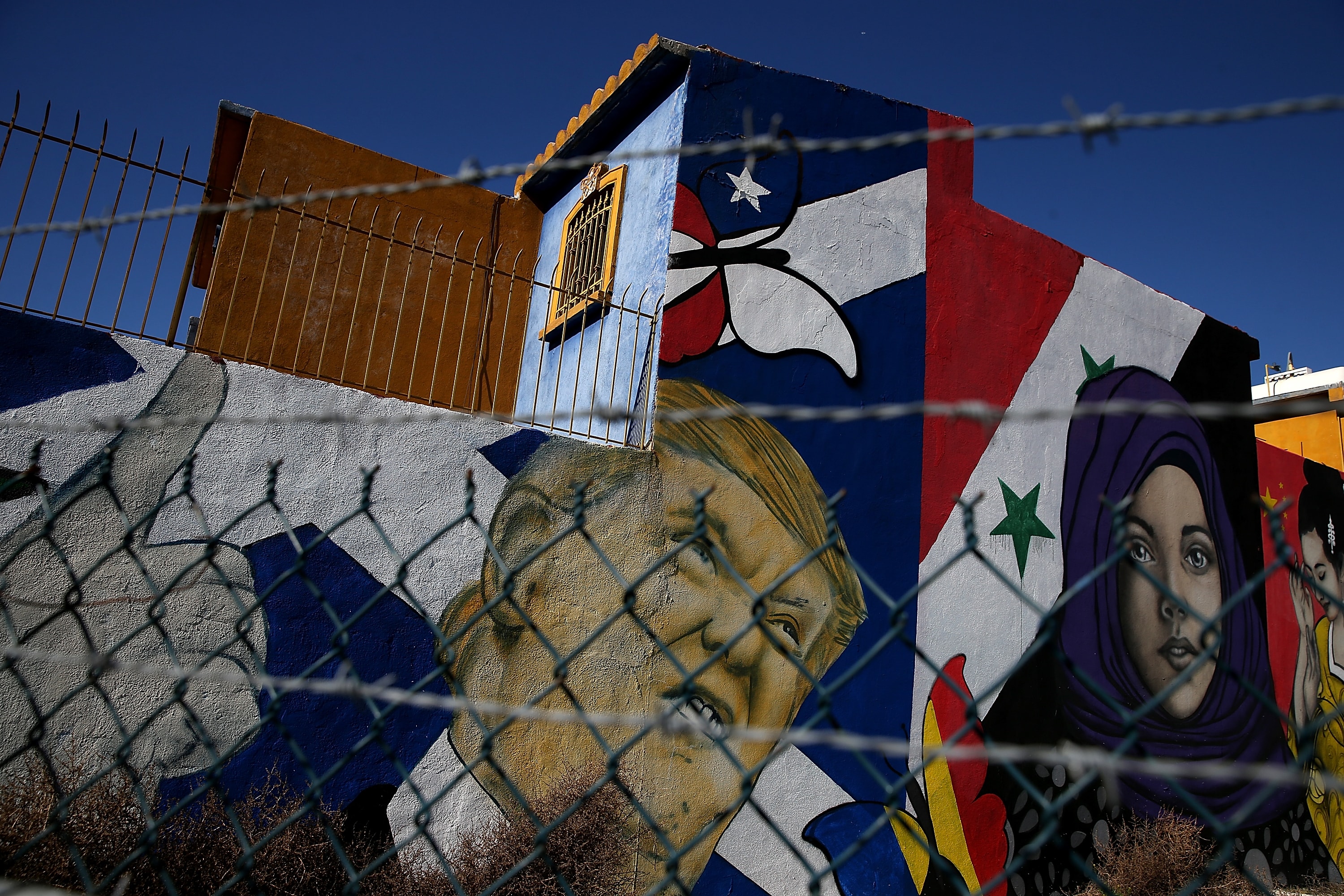López Obrador: The man who created "earthquakes" in Mexico
(Baonghean.vn) - The resounding victory in the general election on July 1 made left-wing candidate Andrés Manuel López Obrador the new President of Mexico. The biggest political shock in this North American country in decades is expected to change the entire operation of the superstructure here.
 |
| Mexican President-elect Andrés Manuel López Obrador campaigns at Azteca Stadium in Mexico City on June 27. Photo: Getty Images |
Hope for a New Mexico
Mexico's political system has been "reset" after Sunday's general election. A 64-year-old baseball enthusiast topped the ballot with 53% of the vote. This strange point appeared in the context of Mexican people being too tired and disappointed with the current leaders - who have led the country deeper into a security crisis and a series of corruption scandals. More than 25,000 people were murdered for various reasons in Mexico in 2017 alone, an unprecedented "record". This figure for the first 5 months of 2018 was 15% higher than the same period last year. An estimated 130 candidates and officials were murdered just in the months preparing for this election.
In such an unstable environment, López Obrador, who ran for president twice but failed, finally succeeded in using the chaos to win support from voters. Obrador won by pledging to bring the most far-reaching reforms to Mexico since the 1910 revolution. His promises were aimed squarely at the people’s frustrations. López Obrador pledged to “kick out” the power of the mafia by stopping corruption among officials. He also promised to establish “austere discipline” in budget spending and devote resources to large social security programs.
Victory is not by luck
But none of this means that López Obrador’s recent election victory was an accident. López Obrador, who is often referred to by his initials AMLO, seems to have spent his entire life preparing for this opportunity. His victory was built on a foundation of his most ardent supporters, which he spent years building. This foundation has helped him weather the storm, despite attempts to ridicule and smear him as a dangerous populist who could plunge the country into chaos.
“There is no one like him in Mexican politics right now,” political analyst Jesús Silva-Herzog Márquez told VOX. And what sets Mexican President-elect López Obrador apart is his life. The son of a shoemaker, López Obrador grew up in poor neighborhoods in the southeastern state of Tabasco. Obrador’s political career began in the 1970s with activities within the Institutional Revolutionary Party (PRI), the major political party at the time. Obrador continued to pursue his ambitions after leaving the PRI and joining a group of like-minded politicians to form the Party of the Democratic Revolution (PRD). At that time, López Obrador began to hold certain positions in local government in Tabasco. However, he still harbors big plans, surpassing his current position, with faith in his very special ability to persuade the masses.
José Ángel Gerónimo, a close friend from that period, remembers a moment when López Obrador showed his resolve. The two friends were stranded on their way to a meeting when their car got a flat tire. Despite an approaching storm, López Obrador left Gerónimo behind and changed the tire himself. He also didn’t flinch when he noticed a government spy following them in a Volkswagen Beetle. “Don’t worry about them,” Gerónimo remembers López Obrador telling him when asked about the surveillance. “They’re human beings. They’ll have to give up their job sooner or later.”
López Obrador’s career path was not smooth. He failed twice to run for Governor of Tabasco state due to dirty tricks by his opponents. But he continued to build his base from within the PRD, which later became the presidential party in the 1990s. López Obrador’s turning point came in 2000 when he completed his transformation from a local official to a national politician by being elected mayor of Mexico City. In the same year, Vicente Fox, candidate of the right-wing National Action Party (PAN), won the presidential election, ending 71 years of continuous rule by the PRI.
 |
| Dealing with the US neighbor is a big challenge for Mexican President-elect Obrador. Photo: VOX |
AMLO's homage
López Obrador’s anti-establishment stance has led some to call him “the Mexican Donald Trump.” Others have compared him to British Labour leader Jeremy Corbyn, or even Venezuelan revolutionary Hugo Chávez. But none of these comparisons are appropriate. Unlike neighboring President Donald Trump, López Obrador is a leftist who has repeatedly declared his distaste for opulence. Obrador is even less like Corbyn, who never expected to win when he ran for the Labour leadership in 2015. López Obrador’s victory was no fluke. And unlike Chávez, López Obrador is a pragmatist.
The Mexican president-elect is not a political speaker or talk show host. He operates on precision, credibility and evidence, a rarity in a country where most politicians are cynical opportunists. As a result, the atmosphere during his campaigns can be described as electric, as was evident when crowds celebrated his victory at the Zócalo in Mexico City. The reverence the people have for him was palpable.
“I don’t think we’ve ever seen politics as personalized as we see with López Obrador,” said Silva-Herzog. But he also pointed out the weaknesses in Obrador’s political strategy: He positions his legitimacy in connection with the people—his supporters. This is a risky calculation, because it is tantamount to declaring war on the opposition. Moreover, being too closely connected to his supporters could backfire, preventing him from mustering the broad social solidarity and support that Obrador needs to implement the sweeping reforms he has promised.
